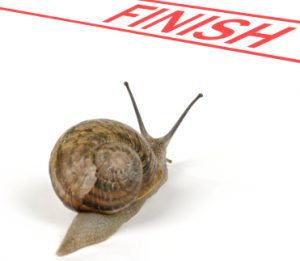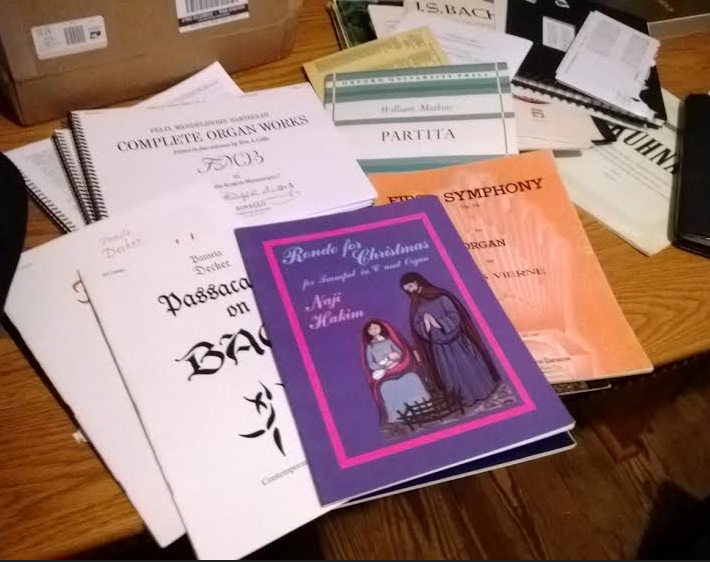I’m very excited about the organ music that came in the mail yesterday.
Here’s the list.
————————————————————————————————–
Pamela Decker. Flores del Desierto (1998): Tangos for Organ. Leupold. Excellent. $19.50
Pamela Decker. Passacaglia on BACH. Leupold. Excellent. $11.50
Naji Hakim. Rondo for Christmas for Trumpet and Organ. United Music. Part included. Excellent. $10.50
Alan Hovhaness. Sonata for 2 oboes and organ. Peters. Score only. Excellent. $12.50
Alan Hovhaness. Sonata for Hichiriki (Oboe) and Sho (Organ). Peters. Excellent; score only. $4.50
Alan Hovhaness. Sonata for Ryuteki (Flute) and Sho (Organ). Peters. Excellent; score only. $4.50
Gerhard Krapf. Organ Preludes on Schemelli Hymns. Sacred Music Press. Excellent. $3.00
William Mathias. 3 Pieces: Invocations, Carillon, Antiphonies. Oxford. Excellent. $9.00
William Mathias. Partita. Oxford. Poor! $1.50
William Mathias. Berceuse. Oxford. Excellent. $5.00
Felix Mendelssohn. Complete Organ Works, Volume I: Three Preludes and Fugues; Duets, and other Preludes and Fugues. Edited by William Little. Novello. Excellent; reprint. $12.50
Felix Mendelssohn. Complete Organ Works, Volume II: The Berlin Krakow Manuscripts Volume I. Edited by William Little. Novello. Excellent; reprint. $24.50
Felix Mendelssohn. Complete Organ Works, Volume III: The Berlin Krakow Manuscripts Volume II. Edited by William Little. Novello. Excellent; reprint. $21.50
Felix Mendelssohn. Complete Organ Works, Volume V. Edited by William Little. Novello. Excellent; reprint. $21.00
Louis Vierne. Symphony I. Marks. Old; poor. $1.00
Johann Kuhnau. Biblicato Sonata No. 4. Peters Urtext. Very good. $1.00
———————————————————————–
I’m especially excited about the Mendelssohn volumes. Volume 1 is being sent separtely so I started examining Volume II this morning.

I didn’t know that Mendelssohn had written more than his Preludes and Fugues and his Sonatas for the organ until recently when Rhonda scheduled one for a recital.
The William A. Little edition seems very thorough and scholarly. I look forward to studying these pieces and possibly performing some of them.

I was also intrigued by Pamela Decker Tangos for organ and look forward to examining them.

i am able to purchase all this music due to the fact that I have an annual allowance from the church for music and books. One year instead of a raise I asked for this. It’s $500 and is non taxable and does not carry over from year to year.

Despite having all this wonderful music I spent my two hours at the organ yesterday slowly reading through music. I carefully played several Bach pieces including my beloved D major fugue (BWV 532).

I have a funny history with this piece. While an undergrad student I undertook to learn and perform this piece at my church in Trenton. I was serving in a Roman buy diazepam online in the uk Catholic church which worshiped in a converted gymnasium. The organ was an awful electric complete with rhythm section (which I never used). Somehow I found out that I was known in the organ studios of U of Michigan as the organist working in a converted gymnasium.
After I left this church I was ironically replaced by a U of M student. This leads me to think that though they ridiculed me behind my back they may have envied the decent salary I was pulling in.
Anyway, I thought I was ready to perform this fugue. In the concert itself I panicked and played the entire piece on manuals leaving out the difficult pedal part.

This is actually no mean feat and I have wondered how I pulled it off.
When I went to study at Notre Dame in South Bend I asked if Craig would teach me this piece. He did so and I performed it well on a graduate recital.
It came back into my consciousness reading about Widor’s experience of playing it for Lemmens and Lemmens’ comment about quick tempos.
One day when I was twenty years old I played for Lemmens the D major Fugue [BWV 532] at a ridiculous speed. He dampened my enthusiasm with the simple word, “Nul!” [Worthless!]. That was enough for me. I thought it all over and soon realized that polyphony does not permit rapid playing, which only confused it, making it sound breathless, a caricature of itself.
These are strong words reported by Vierne. Widor immediately qualified this a bit by saying that Bach’s organ fugues in D minor, C, D, and G major can be played “briskly” the others “require moderate and even rather slow tempos.” He does however say this:
The organ is almost always played too fast. Young people easily yield to the desire to dazzle the audience by this means.
These quotes are from Vierne’s autobiography in Rollin Smith’s book on him.
When I was a bar musician we referred to dazzling audiences in this way as flashing.

Now I know that I am not a virtuoso particularly and even weirdly enjoy playing music slowly, much slower than many organists.

Yesterday I played some of Bach’s monumental works slowly. It was very enjoyable. I don’t think I would ever inflict that slow a tempo on listeners, but I sure enjoy rendering Bach accurately.

